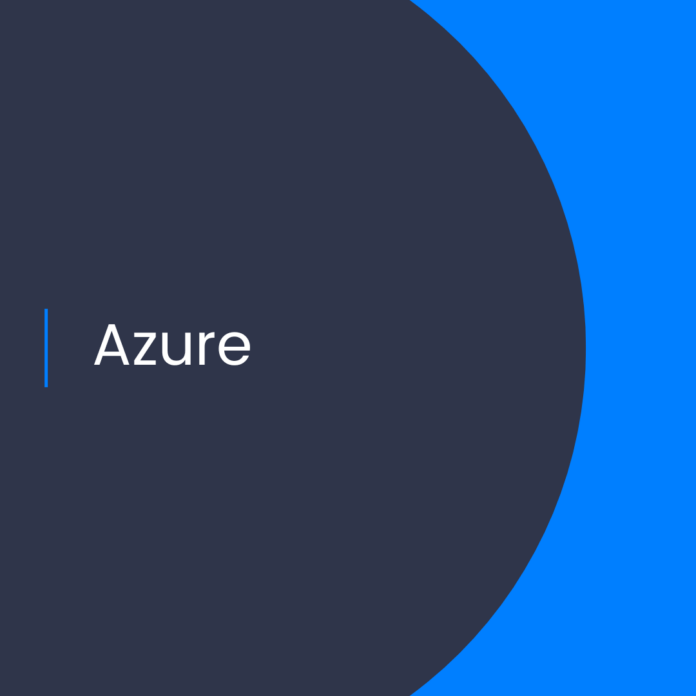Persistent Storage for Windows Containers on Azure Kubernetes Service with NetApp
Introduction
The cloud has become an integral part of the modern IT infrastructure. From small businesses to large enterprises, cloud computing has become a part of the daily operations of many organizations. As such, it is important to understand the various options available for cloud storage and how it can be used to ensure the safety and security of data. In this blog post, we will discuss the concept of persistent storage for Windows containers on Azure Kubernetes Service (AKS) with NetApp.
What is Persistent Storage?
Persistent storage, also known as enterprise storage, is a type of storage that is continuously available and is not lost or impacted when a system is restarted or a service is stopped. It is designed to ensure that any data stored on the system is always available, regardless of the state of the system. Persistent storage is typically used for critical applications where data must be available regardless of system or service restarts, and is often used in conjunction with other forms of storage such as database storage and cloud storage.
What is Windows Containers?
Windows containers are a type of virtualization technology that allows multiple applications to be run in isolation from one another on the same physical system. Containers are typically designed to provide isolation, portability, and scalability benefits to applications. The Windows container feature allows applications to be deployed on a single Windows system and be isolated from each other, which can help to reduce costs and improve security.
What is Azure Kubernetes Service?
Azure Kubernetes Service (AKS) is a fully managed container orchestration service from Microsoft that simplifies the deployment, management, and operations of container-based applications. AKS makes it easy to deploy and manage containerized applications in the cloud, providing a secure and reliable platform for running and managing containerized workloads.
What is NetApp?
NetApp is a leading provider of storage and data management solutions. NetApp provides solutions for data-driven organizations, enabling them to store, manage, protect, and analyze data in the cloud. NetApp offers solutions for enterprise storage, cloud storage, hybrid cloud storage, and software-defined storage.
How to Configure Persistent Storage for Windows Containers on Azure Kubernetes Service with NetApp?
Configuring persistent storage for Windows containers on AKS with NetApp can be done in a few steps. First, create a storage account in the Azure portal. Then, create a Windows container with a persistent storage volume in the AKS cluster. Finally, configure the persistent storage volume in the Windows container to use the storage account created in the Azure portal.
What are the Benefits of Using Persistent Storage for Windows Containers on AKS with NetApp?
Using persistent storage for Windows containers on AKS with NetApp provides several key benefits. First, it ensures that data is always available, even if the system or service is restarted. Second, it provides an easy way to deploy containerized applications in the cloud. Finally, it allows organizations to take advantage of the scalability and reliability of NetApp storage solutions.
Popular Questions About Persistent Storage for Windows Containers on Azure Kubernetes Service with NetApp
1. What is the Difference Between Persistent Storage and Cloud Storage?
Persistent storage is a type of storage that is always available and not impacted by system or service restarts. Cloud storage is a type of storage that is hosted in the cloud and is accessible from anywhere with an internet connection. While both are designed to store data, the two are different in terms of availability and accessibility.
2. What is the Difference Between Windows Containers and Docker Containers?
Windows containers and Docker containers are both types of virtualization technologies. The main difference between the two is that Windows containers are designed to run on Windows systems, while Docker containers can run on any system that supports the Docker engine.
3. What are the Benefits of Using Azure Kubernetes Service?
Azure Kubernetes Service (AKS) is a fully managed container orchestration service from Microsoft that simplifies the deployment, management, and operations of container-based applications. AKS provides several key benefits, including scalability, reliability, and cost-efficiency.
4. How Does NetApp Provide Reliable Storage Solutions?
NetApp provides reliable storage solutions through its suite of products and services. NetApp offers solutions for enterprise storage, cloud storage, hybrid cloud storage, and software-defined storage. These solutions are designed to ensure that data is protected, secure, and always available.
5. What is the Best Way to Configure Persistent Storage for Windows Containers on AKS with NetApp?
The best way to configure persistent storage for Windows containers on AKS with NetApp is to create a storage account in the Azure portal, create a Windows container with a persistent storage volume in the AKS cluster, and configure the persistent storage volume in the Windows container to use the storage account. This will ensure that data is always available, even if the system or service is restarted.
Conclusion
Persistent storage for Windows containers on Azure Kubernetes Service with NetApp is a powerful solution for organizations looking to ensure that their data is always available and secure. By following the steps outlined in this blog post, organizations can easily configure persistent storage for their Windows containers on AKS with NetApp. This will ensure that their data is always available, regardless of system or service restarts.



